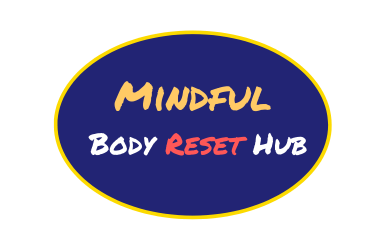Many people seek help with weight loss because they struggle to see lasting results. Losing weight is one of the most difficult tasks many individuals embark on. It’s important to comprehend the difficulties of weight loss, regardless of whether you’ve been fighting stubborn fat for years or have only recently made the decision to take charge of your health. Hormonal imbalances, especially those involving insulin and cortisol, are a major cause of weight loss difficulties for many people. Solving these hormones is essential to long-term weight loss since they have a big impact on how your body stores and burns fat.
This article will walk you through the reasons for the failure of typical diets, the part hormones play in controlling weight, and the actions you should take to lose those excess pounds in a healthy and productive way.
Conventional Diets Don’t Work In Promoting Long-Term Weight Loss
Relying exclusively on a diet is one of the most common mistakes people make while attempting to reduce weight. In an attempt to lose weight quickly, the concept of “dieting” sometimes entails giving up certain meals or severely limiting caloric intake for a little amount of time. Even while you might see some early success, these effects are typically transient. Let’s examine why conventional diets frequently don’t work.
The Drawbacks of Well-Known Diets
There are innumerable diets available, ranging from ketogenic and low-fat to low-calorie and low-carb. Each promises rapid results and a more toned body, but most people find that these methods don’t work for them in the long run. Why? because diets in the traditional sense are frequently band-aid solutions. This is what usually occurs:
First Weight Loss: When you begin a diet, you frequently experience rapid weight loss. Water weight is the main cause of this early weight loss. Your body discharges water when it runs out of glycogen stores, which explains the sudden, reassuring reductions on the scale.
Nutrient Deficiency: The majority of diets urge for you to dramatically cut back on calories or eliminate entire food groups. Because your body isn’t receiving all the vitamins, minerals, and macronutrients it needs to perform at its best, this might result in nutrient deficiencies.
Metabolic Slowdown: Your body slows down its metabolism in response to being deprived of calories and nutrients. In an attempt to shield itself from what it believes to be starving, your body enters a kind of survival mode where it stores energy. This explains why weight reduction stalls and why eating too little food during a diet might result in weight gain afterwards.
Weight Regain: Most people resume their normal eating habits after being on a diet. But if your metabolism is slower, your body is more likely to retain the food as fat, which might cause you to gain weight quickly. People frequently gain back more weight than they did before, which starts a vicious cycle of dieting and overeating.
The most important lesson from this is that diets are not long-term viable strategies for weight loss; they are merely band-aid remedies. Making long-lasting, healthful lifestyle adjustments that not only aid in weight loss but also enhance general health is the true answer.
Changes to a Sustainable Lifestyle are the Solution
 Make healthy, long-lasting lifestyle modifications your main priority rather than a quick diet. Weight reduction happens naturally when your health and wellbeing come first. Here’s how to get started implementing these adjustments:
Make healthy, long-lasting lifestyle modifications your main priority rather than a quick diet. Weight reduction happens naturally when your health and wellbeing come first. Here’s how to get started implementing these adjustments:
1. Put an emphasis on eating a balanced diet
A balanced diet that gives your body all the vital elements it needs is preferable to drastically reducing your calorie intake or eliminating entire food groups. This comprises a mixture of:
Protein: Not only is it necessary for the growth and repair of muscles, but it also prolongs feelings of fullness, which lowers the risk of overindulging.
Good Fats: Despite what the general public may think, fats are not bad for you. Hormone production, cognitive function, and general health depend on the healthy fats present in foods like avocados, nuts, seeds, and olive oil.
Complex Carbohydrates: Choose complex carbs like those found in whole grains, fruits, and vegetables rather than completely eliminating carbohydrates. These give your body a consistent supply of energy and are high in fibre, which facilitates satiety and digestion.
Vitamins and Minerals: Eat a range of fruits, vegetables, lean meats, and whole grains to make sure your diet is high in vitamins and minerals.
2. Set priorities Frequent Workout
Exercise is an essential part of a healthy lifestyle and helps people lose weight. It facilitates calorie burning, lean muscle growth, and metabolic enhancement. The best results come from a mix of cardio (walking, jogging, swimming) and strength training (weightlifting, bodyweight exercises). Aim for 75 minutes of strenuous activity or at least 150 minutes of moderate-intensity aerobic activity per week, in addition to two or more days of muscle-strengthening activities.
3. Take Care of Hormones
Hormones, especially cortisol and insulin, are important in controlling weight. In addition to controlling blood sugar levels, insulin is a hormone that causes fat to be stored. Consistently high insulin levels keep the body in a fat-storing state, which makes weight loss challenging. When levels of the stress hormone cortisol are persistently high, it can also lead to weight gain, especially around the midsection.
Take into account the following tactics to deal with these hormone imbalances:
Cut Down on Sugar Intake: Consuming too much sugar can cause insulin resistance, which makes your cells less sensitive to insulin, raising blood sugar levels and increasing fat accumulation. Reduce your intake of sugar-filled foods and drinks and concentrate on healthy, low-glycemic-index foods.
Handle Stress: Extended periods of stress raise cortisol levels, which can lead to binge eating and the storage of fat, especially around the abdomen. To maintain healthy cortisol levels, incorporate stress-reduction strategies like yoga, deep breathing exercises, meditation, or frequent physical activity.
Intermittent Fasting: This eating schedule alternates between eating and fasting times. Because intermittent fasting allows your body to burn through glycogen stores and start burning fat, it can assist support weight loss and increase insulin sensitivity.
4. Sleep and Hydration:
Sleep and hydration are important factors that are frequently disregarded in weight control.
Hydration: Getting enough water is vital for good health and can help you lose weight by promoting fullness, enhancing digestion, and facilitating the excretion of waste. Try to drink eight glasses of water or more if you live in a hot area or are an active person.
Sleep: Getting enough sleep is essential for controlling weight. Hormones that control hunger and satiety, such as ghrelin and leptin, can be upset by sleep deprivation, which increases appetite and cravings. Try to get between seven and nine hours of sleep per night to help you lose weight.
How Insulin and Cortisol Affect Weight Loss
Let’s now examine insulin and cortisol in more detail. These two hormones are essential for your body’s metabolism and fat storage.
Insulin: The Two-Sided Blade
The pancreas secretes the hormone insulin, which aids in controlling blood sugar levels. Your blood sugar rises after eating, especially when it contains carbohydrates, and insulin is generated to help move the glucose into your cells for energy. Your body may become insulin resistant, though, if your insulin levels are persistently high for any reason—bad food, inactivity, etc. This indicates that your cells are not responding to insulin as well, which raises blood sugar levels and increases the synthesis of insulin. Your body may continue to store fat as a result of this cycle, making weight loss challenging.
Against this, concentrate on:
Reducing Sugar and Refined Carbohydrate Consumption: Swap out refined carbohydrates and sugary foods with whole grains, veggies, and other low-glycemic index items.
Including Intermittent Fasting: By fasting for specific periods of time each day, you can give your body a chance to reset and become more insulin-sensitive.
The Stress Hormone, Cortisol
Stress causes the release of cortisol, also referred to as the stress hormone. Although cortisol is an essential hormone for handling acute stress, prolonged stress can result in persistently high levels of the hormone, which encourage fat storage, especially in the belly area. Elevated cortisol levels may also exacerbate food cravings and hunger.
To control cortisol:
Practice Stress Management: Take part in stress-relieving exercises like yoga, mindfulness meditation, or just going outside.
Make Sure You Get Enough Sleep: Make sleep a priority since getting too little sleep might raise cortisol levels.
My Suggestion: A Comprehensive Approach to Losing Weight
Smoothies that are high in nutrients are a great approach to reduce weight if you’re seeking for a long-term, healthy solution. The goal of the Smoothie Diet is to deliver adequate nutrition via scrumptious and filling smoothies. These smoothies can be an excellent method to help you achieve your weight loss objectives while making sure you’re getting the nutrients you need.
Conclusion
It takes more than trendy diets or fast remedies to lose stubborn weight. It calls for an all-encompassing strategy that include stress reduction, regular exercise, adequate hydration, balanced diet, and enough sleep. You can get long-lasting weight loss and enhance your general health and well-being by treating the underlying hormonal imbalances that might be preventing you from reaching your goals and implementing permanent lifestyle adjustments.
